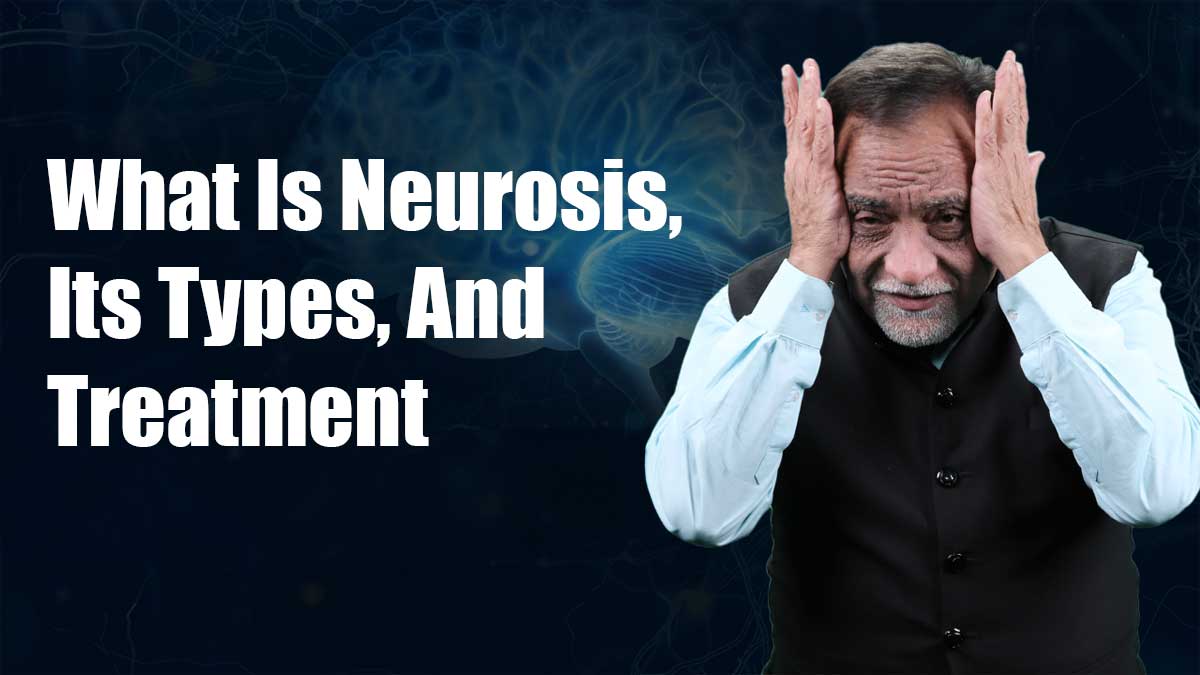Mental health conditions are on the rise, with one out of four experiencing a mental issue at some point in their life. This highlights the need to address mental health problems and take measures to manage them effectively. This week in our ‘Mental Health A-Z’ series, Dr Nimesh Desai, Senior Consultant Psychiatrist, and Former Director, IHBAS, Delhi, explains neurosis and how it affects your mental health.

“Earlier, mental health conditions were categorised as neurosis and psychosis. Psychosis is a group of mental disorders in which a person does not experience any symptoms. In neurosis, a person understands that they are going through issues but feels helpless to overcome them”, highlighted Dr Desai.
In today’s context, these conditions are known as Common Mental Disorders (CMD). Anxiety, depression, phobia, and emotional adjustment problems can be counted as CMD or neurosis.
The World Health Organisation (WHO) conducted a community-based epidemiological study that found that the prevalence rates of mental disorders in adults vary from 8.4-29.1% over 12 months and from 12.2-48.6% across their lifespan. Additionally, MNS disorders account for 14% of the global illness burden measured in Disability-Adjusted Life Years (DALYs).
Also Read: Mental Health A-Z: Expert Explains What Is Jealousy And How To Deal With It?
Why and How Neurosis Happens?
“One of the reasons for neurosis is, of course, genetic, but the majority is caused by psychological, family, social, and economic factors”, said Dr Desai.
He added, “The prevalence of neurosis is higher in western countries than in the rest of the countries. In Tier 1 cities, it is more common due to modernisation and industrialisation.”
Also, the prevalence of neurosis is different in men and women. It is influenced by external factors, therefore, it is important to deal with mental, social, and family issues.
Societal Tips For Individuals Dealing With Neurosis

Dr Desai listed management tips for people dealing with neurosis as follows:
- It is essential to communicate effectively in various aspects of our lives
- Consult with your family doctor or a psychologist
- Medication is possible to cure this condition but with a somewhat lower success rate.
- Counselling and psychotherapy are essential to effective treatment.
How To Cope Better With Neurosis Socially
Dr Desai listed various ways to cope better with neurosis in the following ways:
- In mental disorders, especially neurosis, a person suffers internally. Hence, empathy, sympathy, and support from friends, family, and society are required.
- Help each other overcome depression and anxiety by communicating with each other, guiding them, and providing support.
[Disclaimer: This article contains information provided by a registered healthcare professional and is for informational purposes only. Hence, we advise you to consult your expert if you are dealing with any mental health issue for proper diagnosis and treatment.]





You must be logged in to post a comment.